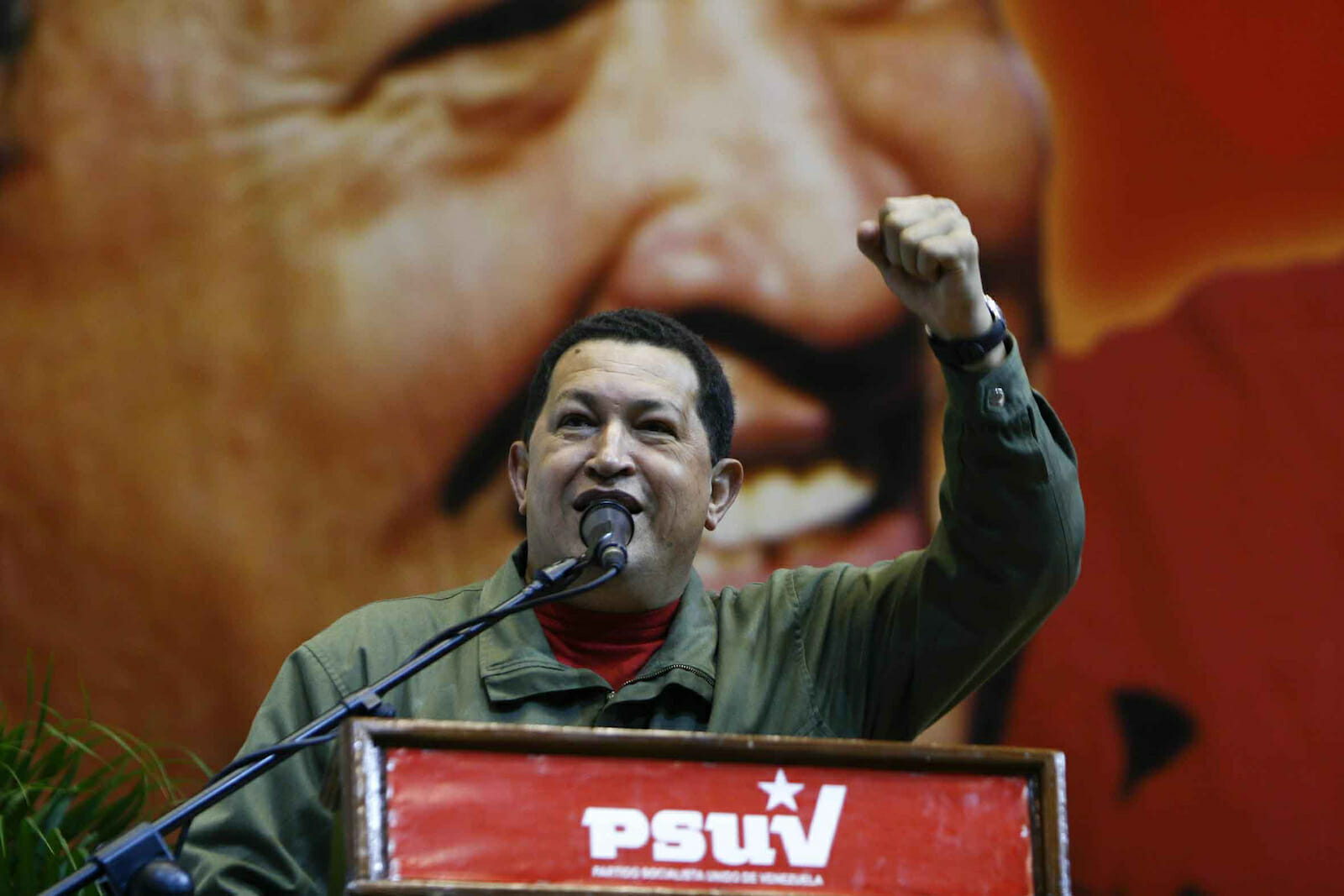
Venezuela’s Oil Sword
This week, the U.S. slammed Venezuela’s state oil company PDVSA with sanctions in an attempt to deter its trade with Iran. “Sanctions against the Fatherland of Bolivia? Imposed by the Gringo imperialist? Well, welcome Mr. Obama, don’t forget we are the children of Bolivar!” responded Venezuela’s President Hugo Chavez via his Twitter account.
Chavez has long antagonized the United States, and the sanctions he faces are nominal. As an energy economist would say, they’ve been factored into the cost of business. The back-and-forth is expected and therefore inconsequential to oil markets. It’s the uncertain quantity and quality of Venezuela’s oil reserves that keep U.S. foreign policy analysts and energy forecasters up at night. Like Saudi Arabia’s national oil company, PDVSA operates behind a cloak of secrecy. The Venezuelan constitution strictly forbids foreign investment in upstream oil activities. U.S. oil companies ExxonMobil and ConocoPhillips exited Venezuela in 2007 due to nationalization reforms.
The U.S. can estimate Venezuela’s oil capacity. Currently, Venezuela comprises about 10 percent of U.S. oil imports; it ships about 45 percent of its oil to the United States. CITGO Petroleum Company, a subdivision of PDVSA, markets gasoline to U.S. customers through 14,000 independent retail outlets in America.
According to Oil and Gas Journal, right now Venezuela boasts 211 billion barrels of proven oil reserves, the second largest such reserves in the world behind Saudi Arabia. Its 2010 production totaled 2.36 million barrels per day. Venezuela and Saudi Arabia’s true petroleum potential, however, depends on responsible good stewardship.
It’s been six years since the late U.S. energy banker Matthew Simmons released his detailed analysis of Saudi well quality, Twilight in the Desert: The Coming Saudi Oil Shock and the World Economy. Simmons, founder of the Houston-based energy investment bank Simmons & Company International, died last year, depriving the world of a precious resource for novice energy researchers. His colorful, lucid slide shows on global oil production appeared regularly on his firm website. Thirty years of field experience backed his warnings for the oil industry. Simmons distinguished crude varietals with the zest of a wine aficionado and built economic models with the precision of a banker. Twilight in the Desert offers a context for judging Venezuela’s oil production.
After studying an archive of hundreds of petroleum engineering papers, Simmons projects rapid production declines from Saudi Arabia’s greatest oil fields—the “super-giants” that have sustained world economic growth for the last fifty years. Overproduction, he fears, has spoiled most Saudi fields, lowering their final recoverable volume. Coaxing out their last barrels would require considerable time, money, and energy for secondary and tertiary oil recovery techniques. Diminished long-term production would threaten the Saudi government’s ability to add spare capacity to the world oil market and provide a cushion in times of supply shock.
The U.S. depends on spare capacity from Venezuela, too. Only four to five days by tanker, the U.S. market is the most cost-efficient destination for 1.5 million barrels per day of Venezuelan oil. In an emergency, Saudi crude is six weeks away from the United States. But Venezuela’s oil may be closer to its twilight than Saudi Arabia’s. The handful of major oil fields that produce Venezuela’s exporting capacity are even older than the Saudi ones that Simmons condemns as “mature” and “aging” in Twilight in the Desert. The oldest Venezuelan field, Lagunilla, was discovered in 1926; its prime production years were long ago. The U.S. Energy Information Administration estimates that PDVSA spends $3 billion a year to maintain current production levels from old fields.
Even if Venezuela has maintained its wells, the bulk of its oil reserves are poor in quality—perhaps worse than we know. High-grade petroleum, or light, sweet crude in industry parlance, easily refines into high-demand end-products like gasoline and jet fuel. Sweetness refers to low sulfur content; lightness refers to low density. Saudi Arabia prides itself on its geysers of light-sweet crude gushing from Jurassic rock. Low-grade petroleum, or heavy, sour crude, is Venezuela’s specialty. The use of Venezuela’s heavy oil reserves in the Orinoco Belt depends on the sufficient refinery capacity in the United States to convert that raw crude into the jet fuel, gasoline, heating oil, and diesel that power our energy-intensive lifestyles. The largest number of refineries in the United States can economically process light, sweet crude oils, while only a small fraction of refineries can effectively use heavy, sulfurous crude.
Because of its proximity to Venezuela, the majority of these U.S. heavy-oil refineries are concentrated along the Gulf of Mexico. Were another hurricane like Katrina to inundate the Gulf coast, the U.S. would have no capacity to process most Venezuelan oil. The latest news out of Caracas casts doubt on the ability of Chavez’s government to manage its energy sector. Earlier this month, Venezuela began rationing electricity after blackouts afflicted nearly half the country. The sudden power outage halted operations at its largest oil refinery complex. Venezuela’s oil sector actually shrank during first quarter 2011, even as crude price averaged $91/barrel and its economy posted GDP growth of 4.5 percent. The International Monetary Fund projects the country to grow slower than any other major economy in Latin America. The bottom line: Venezuela’s petroleum exports have dropped almost 50 percent since peaking in 1997.
There are sources of hope. Soon, when Mexico becomes a net oil importer, the U.S. will surely pressure Venezuela to accept foreign oil inspectors and advisers who can help PDVSA maximize its recoverable reserves. Hugo Chavez could lose re-election next year, if democratic fever spreads from the Arab world to Latin America. If they ultimately help us discover the true measure of Venezuela’s oil affluence, then perhaps we can declare the U.S. sanctions against PDVSA a success.

